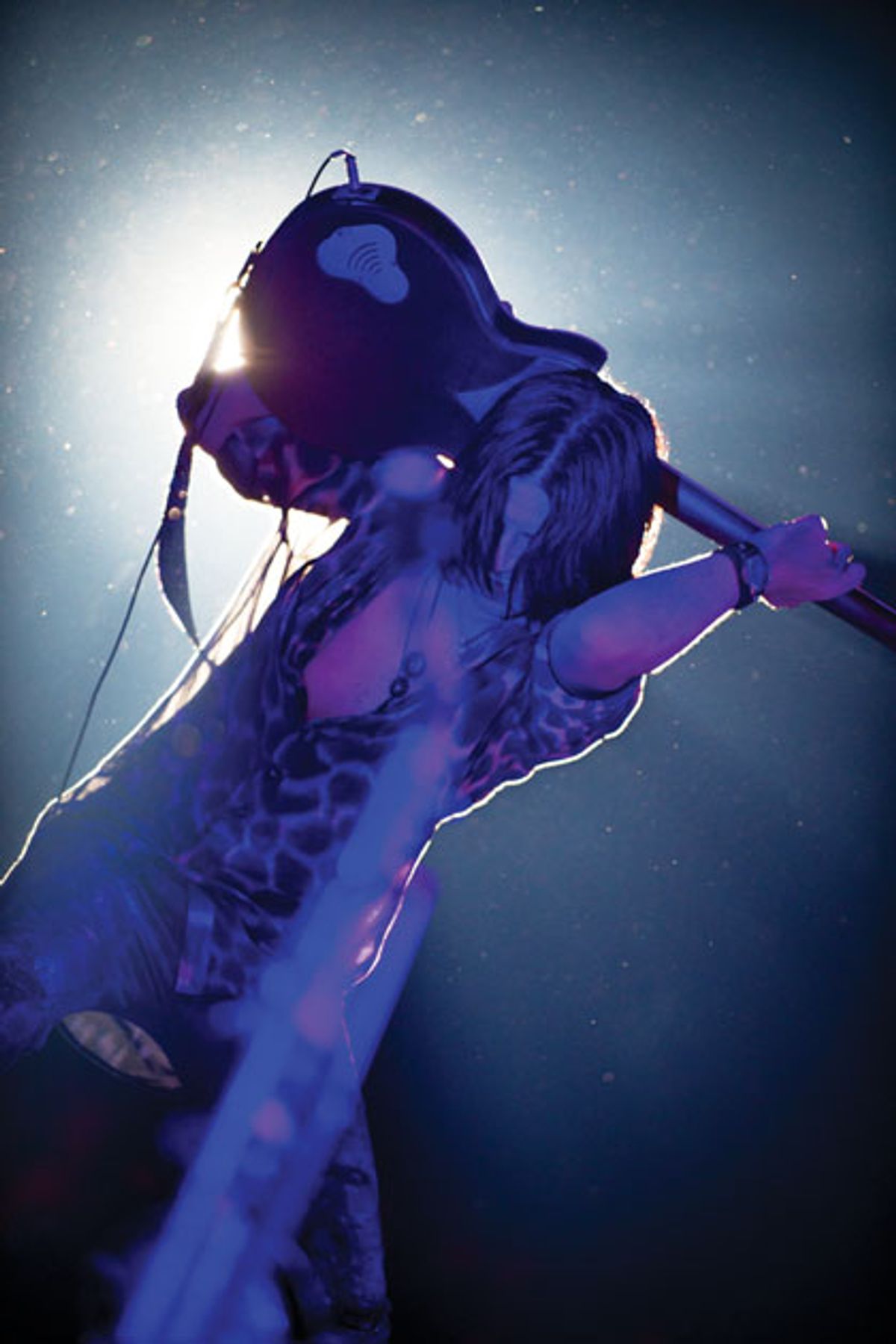
Exploring the yin and yang of a musician’s ego.
I recently read a really interesting blog post titled “25 Things Musicians Need to Stop Doing Right Now,” and it’s chock-full of great advice. Number nine on the list is “Stop worrying about your ego.” Author Guy Perchard states, “The music business is one of the only industries in the world where being an egotistical, self-important exhibitionist is a good thing. It’s a world of show-offs, performers, braggers, and promoters. If you haven’t got an ego, you might be in the wrong place.”
This is partially sound advice in my opinion. Being an exhibitionist, a show-off, and a promoter is definitely the right move sometimes, but we can’t all be rock stars. It’s one thing if you are a superstar and have a big, inflated ego that you never tone down. For most of us working musicians, however, trashing dressing rooms and throwing TV sets out of hotel windows would be considered unacceptable behavior.
Controlling and harnessing your ego so it serves you is an important part of being a successful, professional musician. So this month, I’ll share some thoughts on developing a healthy ego from the perspective of a sideman/studio musician.
The ugly. Let’s start by talking about how your ego can hurt you. In past columns, I’ve addressed the importance of professional musicians being considerate people in tune with their surroundings. It’s essential to be adaptable and intuitive in different situations, both social and musical. Onstage, no one likes a solo hog or a guitarist that just plays too loud or doesn’t listen to the rest of the band. Likewise in the studio, being open to suggestions, ideas, and requests from bandmates, the engineer, and the producer is essential. And when just hanging with the rest of the band, being a good conversationalist and a good listener is incredibly important.
If you’re a braggart or an egomaniac, you’ll find that others just won’t want to work with you, no matter how well you play. Artists that hire musicians for their bands generally just want a few basic things—and this applies from day one! You’re being analyzed and scrutinized the moment you walk into an audition, both musically and as a human being. Of course—almost paradoxically—you are also expected to possess extreme confidence in yourself and your skills. When required, you need to be able to step up and “play like a rock star.” You’ve got to be able to balance humility with extreme confidence to be a successful professional musician. It’s almost like a Clark Kent/Superman scenario, where you have an alter ego that you can muster up when the situation calls for it.
Speak softly but carry a big stick. I toured Japan last year with the great Tsuyoshi Nagabuchi, and the stage featured a long “ego ramp” jutting straight out off the front of the stage and deep into the audience. On the very first song of our set, there was a dual-harmony guitar solo right after the second chorus. When Tsuyoshi screamed “Guitar!” into the mic, my co-guitarist Ichiro and I would jump off the stage, run full-tilt to the end of the ramp (in tall boots no less), and rip a dual-harmony solo playing back-to-back.
It’s crazy when you think about it: One minute I’m backstage, and the next I’m not just onstage, but playing a solo while running towards the middle of the arena. It’s impossible to do something like this without calling on your ego. There’s simply no room in that moment to be shy, timid, or understated. There are thousands of people watching, they all paid top dollar for their tickets, and they want a show. “Playing to the back row” is an expression I heard once, and it’s fitting.
But when the show is over and it’s time to unwind and travel to the next city, you revert back to being polite, considerate, and easygoing. If you’re a solid player that can master your alter egos, you’ll be a big asset to any touring group.
Be adaptable and amenable. For most of the past few years, I’ve been touring internationally and working with foreign musicians and artists. This adds an extra level of complexity, since you really have to be aware and respectful of customs and cultures that may be unfamiliar. For example, the Japanese work very hard and rarely complain.
Tsuyoshi likes to change things like song arrangements and instrumentation often, and at the drop of a hat mid-tour he might decide to move you from playing lead electric to acoustic guitar on a certain song, and ask the other guitarist to take what was previously your solo. Not taking something like this personally, gracefully complying, and doing your best is a huge part of the gig. Perspective is key: The ugly ego might default to thinking that the artist doesn’t appreciate your lead playing, whereas the healthy ego enables you to realize that he just really likes the way you sound and groove when playing acoustic guitar!
I often tend to get philosophical in my column, talking about the psychology and reality of working as a pro guitarist. I feel that when it comes to a career in music, the ideas and concepts I share here are just as important as your gear and practicing the right licks. And developing your Superman/Clark Kent alter ego is essential in order to be successful.
